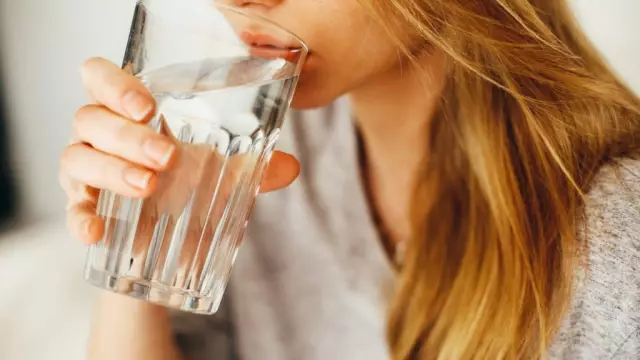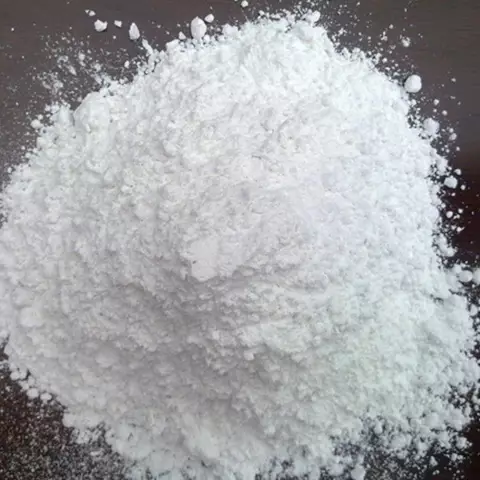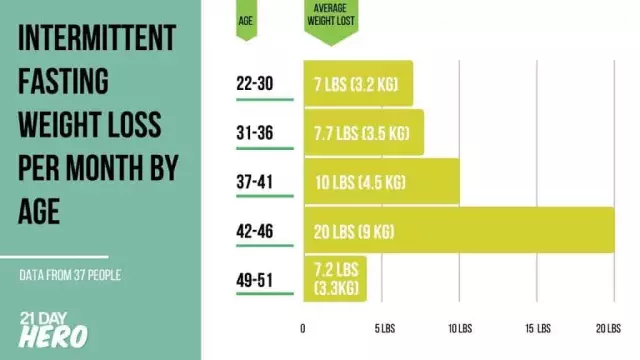- Author Rachel Wainwright wainwright@abchealthonline.com.
- Public 2023-12-15 07:39.
- Last modified 2025-11-02 20:14.
Sparkling water

Carbonated water is a popular non-alcoholic soft drink. It is either drinking water or natural mineral water enriched with carbon dioxide.
Healing mineral water is enriched with carbon dioxide with a mineralization of more than ten grams per liter. The composition of such water practically does not change during storage, and all its useful components are preserved for a long time. In nature, carbonated water is very rare and is quickly exhaled due to the low concentration of carbon dioxide. gas, losing its properties.
Every American consumes about two hundred liters of soda a year. For comparison, the average citizen of the CIS annually drinks about fifty liters of water, and every resident of China - about twenty liters. According to statistics, carbonated water and drinks made on its basis in America occupy 73-75% of the total production of non-alcoholic products.
The compressor for the saturation of water with carbon dioxide was invented by Tobern Bergman, a Swedish designer. In the 19th century, this apparatus was improved and its industrial analogue was created. However, water production was very expensive, so baking soda was used to carbonate.
Carbonation in modern production is carried out by mechanical, chemical methods. The mechanical method consists in hardware carbonation in food tanks, siphons, saturators. Under high pressure, water is saturated with gas from 5 to 10 g / l. The chemical method consists in adding baking soda or acids to the water. The fermentation method is used in the production of cider, kvass, champagne, beer, sparkling wines.
The composition of sparkling water
In the food industry, depending on the composition, weak, medium and highly carbonated water is emitted. Each carbonated drink has its own sweet and sour base. Cyclomat, aspartame, potassium acesulfate (sunnet), saccharin are usually used as sweeteners.
Very often, malic, citric or orthophosphoric acids are added to the water. Caffeine is added to certain types of carbonated water.
Carbon dioxide in water is used as a preservative. It enters into a chemical reaction with water and quickly dissolves in it. Carbon dioxide, killing all pathogenic microorganisms, prolongs the shelf life of carbonated drinks.
Benefits of soda water
The benefits of carbonated water have been known and used since ancient times. At that time, people used water from natural sources exclusively for medicinal purposes. It was used both for ingestion and as a basis for the preparation of medicinal baths. Hippocrates, the famous physician of antiquity, devoted not a single chapter of his medical works to the natural sources of carbonated water.
The benefits of carbonated water were so exceptional and obvious that at the end of the eighteenth century, industrialists turned their attention to this drink. Since then, sparkling water has been sold all over the world. English chemist Joseph Priestley first created a carbonated drink synthetically.
Only natural carbonated water can bring significant benefits to the human body. Chilled sparkling water is a better thirst quencher than regular water. It is prescribed at a low acidity level to improve gastric acid production. Neutral molecules of natural water nourish cells throughout the body and alkalize blood plasma. Sodium in such a natural drink activates the action of the body's enzymes, maintains muscle tone and acid-base balance. Magnesium and calcium prevents calcium from leaching into muscles under various loads. Carbonated natural water improves the functioning of the lymphatic, nervous and cardiovascular systems, increases appetite, increases hemoglobin, and improves digestion.

Sayany, Baikal, Duchesse, Tarhun - carbonated drinks containing extracts of medicinal herbs. Tarragon in Tarragon and Duchess has an anticonvulsant effect, improves digestion and increases appetite. Sayan drink contains essential and tannins, ascorbic acid and other useful substances. Lemon syrup and leuzea extract in its base relieve fatigue and increase muscle tone, stimulate the nervous system. Pear infusion in Duchess perfectly quenches thirst, and also has a diuretic effect.
The harm of carbonated water
Most nutritionists and doctors talk about the dangers of synthetic carbonated water for the human body.
The greatest harm soda water can cause the body of young children, as well as lactating and pregnant women and people suffering from allergies and obesity and diseases of the gastrointestinal tract. Carbon dioxide can cause flatulence, bloating, and belching.
Carbonated drinks tend to be high in sugar. Regular consumption of sugar in large quantities often leads to disruption of the pancreas and endocrine system and increases the risk of developing diabetes mellitus and atherosclerosis.
Synthetic carbonated drinks are very poor at quenching thirst and are often addictive. Excessive consumption of soda disrupts fat metabolism and water-salt balance in the body, and also increases the concentration of harmful cholesterol in the blood plasma.
The sweeteners in these drinks can cause allergic reactions, kidney stones and blurred vision.
The acids in soda damage tooth enamel and irritate the stomach lining. Phosphoric acid leaches calcium from bones, increasing the risk of osteoporosis.
Caffeine has a stimulating effect on the nervous system. In addition, it can contribute to the development of addiction.
Many carbonated drinks contain sodium benzoate. In combination with ascorbic acid, it releases the harmful carcinogen benzene. This substance is capable of destroying human DNA.
Found a mistake in the text? Select it and press Ctrl + Enter.






